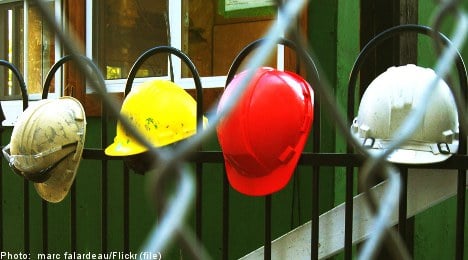In just five years, the number of construction site employees have doubled, and the number of construction companies have increased by 75 percent.
Ola Månsson, CEO of the Swedish Construction Federation (Sveriges Byggindustrier), believes today’s safety regulations are sufficient.
“The rules are all there: wear your safety vest, wear your helmet and your harness. It’s the work place attitude which has to be changed,” he told SR.
Even though the regulations are in place, he frequently sees them ignored. Helmets and other safety gear are regularly left unused.
“We want Sweden’s Work Environment Authority to enforce on-site controls, regular controls would be a major help for us,” Månsson said.
As the number of construction companies has sky-rocketed, fewer and fewer work place inspections are being performed by Sweden’s Work Environment Authority (Arbetsmiljöverket).
The explanation is that the authority has received less money from the government.
“If you decrease our budget, we’re going to have fewer employees,” Mikael Sjöberg, head of the authority, said to SR.
Every month, on average, a construction site worker is killed in a work place accident in Sweden.



 Please whitelist us to continue reading.
Please whitelist us to continue reading.
Member comments